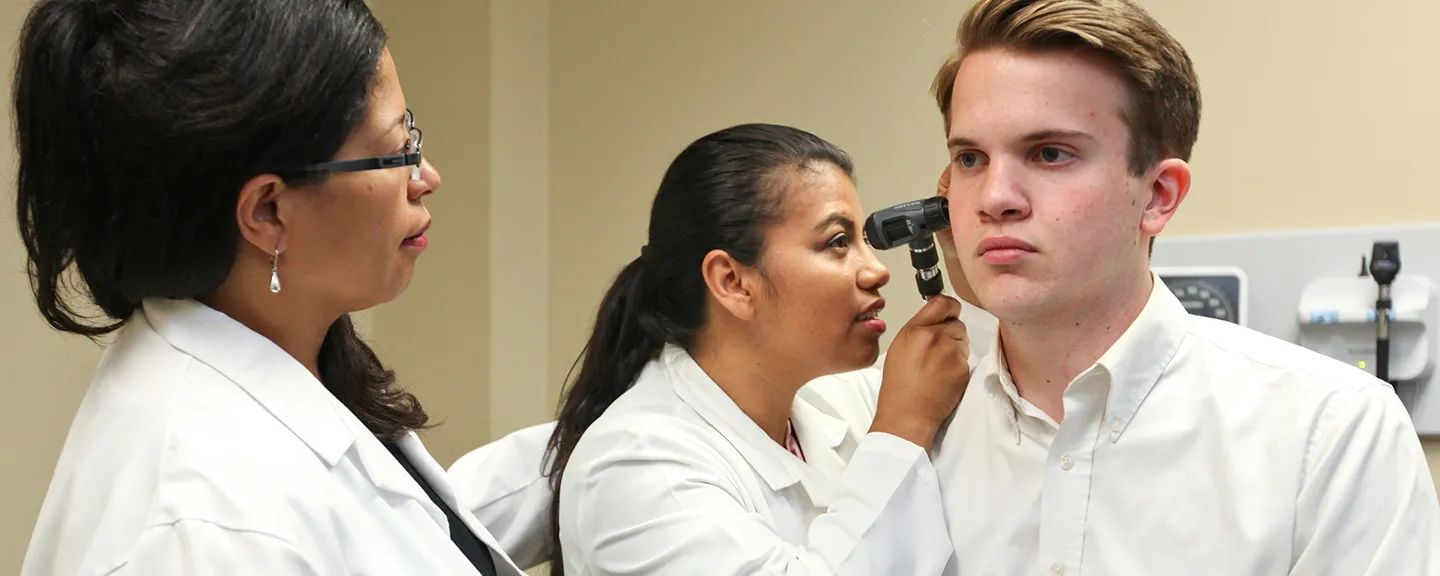- Home
- >
- APU Articles
- >
- News Article
Thinking of a Master’s in Nursing? Here’s How to Know If You’re Ready
April 16, 2020 | Written By Heather Nelson

Wondering if a master’s degree in nursing is the next step for you? Here are a few benchmarks that can help you know you’re ready.
You Have a Knack for Leadership
According to Lawrence Santiago, EdD, RN-BC, CMSRN, CNE, assistant professor in the School of Nursing at Azusa Pacific University, a natural inclination toward leading others is a sign you’re ready to pursue management.
“I’ve worked with management teams for many years, and the common thread seems to be a knack for leadership early in their career,” Santiago explained. “Those skills show up early on. If you’re the one taking charge of a group project and want to improve care quality, you’re probably inclined to be a leader. For those working bedside, if you enjoy being a charge nurse and solving problems, then management is likely the way for you.”
Santiago emphasized the importance of knowing your interest level in leading. Because managing people isn’t for everyone, you need to make sure it’s something you enjoy and are truly passionate about.
“You have to be willing to lead,” Santiago said. “But, most importantly, you have to enjoy it.”
You’re an Expert in Your Unit
As with any leadership role, having expertise in your field is important for building trust with those you’re leading. As a nurse, you have an advantage if you’re an expert in the unit you’d like to manage. Not having the required expertise can potentially create an obstacle, as you’ll likely have to work harder to gain the trust of staff.
“When you have less experience than the nurses in your charge, that can be another hurdle to overcome,” Santiago said. “Having experience is always good.”
You want to have at least two to five years of experience in your unit, whether it be pediatrics, ICU, obstetrics, or other areas, Santiago suggested.
You Want to Make a Difference Behind the Scenes
The MSN in Healthcare Administration and Leadership at APU emphasizes both management and leadership. This means nurses gain a knowledge base that extends beyond the bedside.
“This degree gives you all the background you need to know to be a manager—how to work with staff and human resources, how to manage a budget,” Santiago explained. “You don’t get that in nursing school.”
Nurses who are good at delegating tasks, influencing others, and overseeing administrative duties should feel confident they can enhance these skills through coursework and practicums. Doing so can lead to a number of new prospective career paths, including care coordinator, hospital-wide shift supervisor, assistant manager, and manager.
Working Toward a Master’s in Nursing at APU
Taking the next step in your nursing career means gaining the skills needed to manage and lead in your unit and beyond. Furthering your nursing career by working in a leadership role is more accessible than you might think.
APU’s MSN in Healthcare Administration and Leadership offers fully online courses that work with your schedule. But, more than that, APU’s program aims to develop compassionate, collaborative leaders who are dedicated to making a difference in health care. Together with the university’s values-based education, you’ll feel equipped to serve those you lead and help them thrive in the workplace.
Are you interested in using your nursing skills to lead change in health care? Learn more about APU’s Healthcare Administration and Leadership program and apply today.